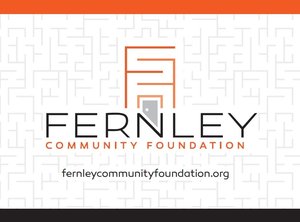Harris revives death-with-dignity bill at Nevada Legislature, carrying on the cause of retired Sen. Parks
By Ray Hagar, Nevada Newsmakers
State Sen. David Parks — retired but respected — led three consecutive, emotional yet unsuccessful drives at the Nevada Legislature to pass a “death-with-dignity” law, the last coming in 2019.
Now, Sen. Dallas Harris, D-Las Vegas, said on Nevada Newsmakers she has taken up Parks’ passion, the “death- with-dignity” bill, which would allow the terminally ill to end their life with a prescribed drug.
Harris, in her first elected term after being appointed to the Senate in 2018 to fill in for newly elected Attorney General Aaron Ford, is the lone primary sponsor of SB105.
Yet Harris is confident of its success, saying she also has the support of Assemblyman Edgar Flores, who holds the leadership position of Majority Whip in the Lower House.
“We are tag-teaming it, trying to make sure we wrinkle out all of the issues that happened previously,” Harris told host Sam Shad.
“I think the chances (of becoming law) are high,” she said.

Harris also praised the legacy of Parks, and his fight for “death-with-dignity” bills at the Legislature.
“You mentioned former Sen. David Parks,” Harris said. “He has this amazing legacy and there was no way I was going to let this piece of legislation theoretically die with him leaving. This is something I am passionate about and believe we need to get done.”
The 2021 bill allows physicians to prescribe a drug that would induce death and allow terminally ill patients who meet certain requirements to request a life-ending prescription. Only the patient could administer the drug and the death would not be listed as a suicide or homicide.
Under the proposal, patients requesting a “right-to-die” drug must be 18 and have been diagnosed as terminally ill by at least two doctors. As was the case in the 2019 bill, the patients must give a written request to die to a doctor and that request must be witnessed by two adults.
“This is about the government getting out of the way and stepping back and allowing people to make the decision between them and their doctors,” Harris said. “Not one (doctor) but two, along with any other religious clergy they feel they need to consult. It is simply the right thing to do.”
The bill also prohibits insurance companies from cancelling policies of people who request death-with-dignity considerations or negate payouts to policy holders who choose the death-with-dignity option.
The bill has been referred to the Committee on Health and Human Services. No hearing has been scheduled.
In 2019, the bill lost two potential votes in the Senate when Sen. Pete Goicoechea, R-Eureka, pulled his support and Senate Majority Leader Kelvin Atkinson resigned after admitting campaign finance violations, according to the Reno Gazette-Journal.
In 2017, Goicoechea, a rancher from Eureka County, supported the bill, saying he had seen too many Nevadans choose a shotgun to end their misery, according to a opinion column in the Reno News & Review written by former state Sen. Sheila Leslie, D-Reno.
“We are looking to give people an option, that is informed, with their doctor,” Harris said. “This is not the doctor’s decision. This is the patient’s decision. The doctors are there to offer the diagnosis, to offer a second opinion and then offer a prescription, so we can do this in a way that allows (the terminally ill) to die with some dignity.”
A consistent opponent of the bill has been current Senate Assistant Minority Leader, Dr. Joe Hardy, a physician from Boulder City. In 2015, Hardy refused to give the bill a hearing when he chaired the Senate Health and Human Service Committee, Leslie wrote.
Shad noted Hardy’s position as a medical doctor has been that it is a doctor’s duty to save life, not end it.
“I’ll be honest. I have not had a direct conversation with Sen. Hardy,” Harris said. “I understand where he is coming from. And frankly, I want doctors to be on the side of saving lives. So that completely makes sense.
“But I think we are talking about something a little bit different here, when you are dealing with a terminal illness, where there is no hope for recovery, aside from a small sliver of a miracle,” Harris said.
“People are in pain and are suffering,” Harris added. “I’d be happy to talk to Sen. Hardy about some of the experiences he has had and relate those to what we are actually trying to do.”
Eight states and Washington D.C. currently have death-with-dignity laws. More may be on the way.
Oregon became the first state with a death-with-dignity law in 1994, when voters narrowly approve the measure. It was also approved by Oregon’s Legislature in 1997.
Washington followed with its own law in 2008. The measure has picked up momentum nationally in recent years. Hawaii, Maine and New Jersey passed death-with-dignity laws in 2019. Colorado and California laws went into effect in 2016.
A similar bill is currently moving through the New Mexico Legislature. The New Mexico state Senate recently has passed a law that would remove criminal and civil liability for doctors who assist in the death of terminally ill patients who have chosen to end their life, according to The Associated Press.
Members of the Catholic Church in New Mexico are on both sides of the debate, according to reports.
The Catholic Church, however, officially opposes right-to-die or assisted suicide. In 2014, Pope Francis said the right-to-die campaign is “peddling a great lie,” according to a story in “Catholic Online.” In denouncing the right-to-die movement, Pope Francis has said euthanasia is a sin against God and creation.
New Mexico’s bill is named the Elizabeth Whitfield End-of-Life Options Act, in memory of a former New Mexico judge who testified in support for the right to die in 2017. She died of cancer the following year.
In 2009, the Montana’s Supreme Court ruled state law did not bar a doctor from honoring a terminally ill, mentally competent patient’s request to prescribe a drug that would induce death. Since then, the Montana Legislature has considered bills that would codify or ban the practice although none have passed, according to reports.




